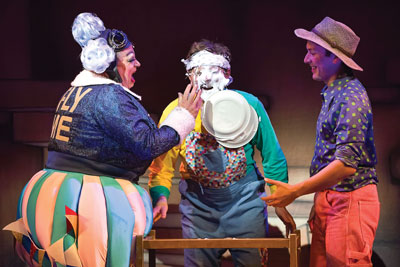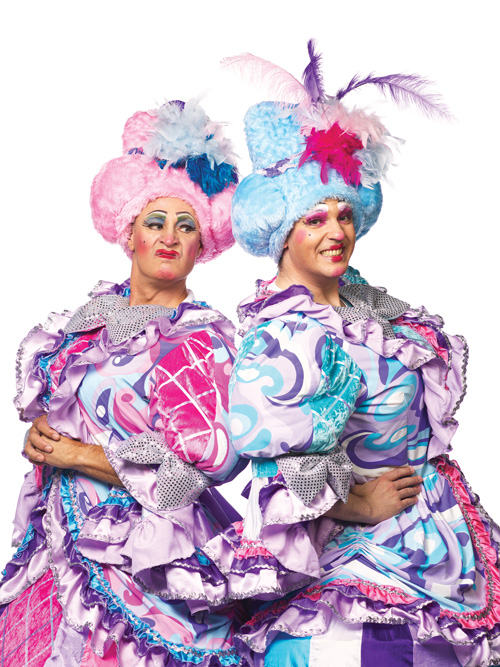
by Kate Brewster
The Pauline Quirke Academy of Performing Arts (PQA)
Joking around is the best part of childhood and life. And whilst children are thinking up and performing their jokes, they are also doing something brilliant for their development.
Laughter isn’t just the best medicine, it’s also one of the best teachers. We believe that humour is one of the most powerful tools children have for building confidence, developing social skills and learning to think creatively under pressure.
As adults, we sometimes forget that telling a joke is a complex form of communication. Children are experimenting with timing through dramatic pauses, learning to read people’s facial expressions for cues and taking creative risks, all essential for growing strong interpersonal skills.
The beauty of comedy is that it’s immediately rewarding. Unlike other forms of performance where success might be subjective, comedy gives instant feedback, people either laugh, or they don’t. This teaches children resilience and the courage to try again, while also helping them develop that crucial skill of reading a room.
Comedy is also fundamentally about connection. When we share humour, we are building bonds, defusing tension and learning empathy by understanding what makes others tick. We see shy children blossom into confident performers once they discover their comedic voice, and we watch naturally funny kids learn to channel their humour constructively.
Here are some simple, fun ways that parents and carers can nurture their child’s comedic instincts at home.
Embrace the family comedy hour
The living room is the perfect comedy club for budding performers. By creating a supportive environment where everyone can experiment with humour, families can strengthen bonds while developing their children’s confidence and creativity.
Fun ideas
• Family stand-up night: Set up a ‘stage’ area in your living room and let each family member perform a short comedy routine or just tell their favourite joke. Encourage children to write their own material about everyday family life, they’ll be surprised how funny ordinary moments can become.
• Improvisation games: Play simple improv games like ‘Yes, and…’ where one person starts a story and others build on it, always accepting and adding to what came before. These games teach quick thinking and collaborative creativity.
• Character creation: Help children develop funny characters with distinct voices, mannerisms and catchphrases. They can use these characters in stories and skits or just everyday play.
• Comedy critique: Watch family-friendly comedians together and discuss what makes them funny. Help children identify different types of humour – physical comedy, wordplay, observational humour and encourage them to try different styles.
Activities like these help children understand that comedy is a craft that can be developed, not just something you’re born with, teaching them valuable lessons about perseverance and the power of practise.
Master the art of everyday observation
Comedy teaches children to see the world through a different lens, transforming everyday moments into potential sources of wonder. When children learn to spot the amusing quirks in ordinary situations, they’re developing a mindset that serves them far beyond the stage, one that approaches life’s challenges with curiosity and creativity rather than worry.
Fun ideas
• Comedy journals: Encourage children to keep a notebook of funny things they notice each day, overheard conversations, silly signs, peculiar behaviour. This builds their observational skills and gives them material to work with.
• Family impression games: Have children impersonate family members (in good spirit), teachers, or characters from TV shows. This helps them develop their skills of observation and teaches them about different personality types, while also learning the important distinction between affectionate mimicry and hurtful mockery, a valuable lesson in empathy and respect.
• “What if” games: Pose silly hypothetical questions like “What if dogs could talk?” or “What if gravity worked backwards?” and let children explore absurd possibilities.This develops their creative thinking and ability to find humour in unusual situations, helpful in situations when they can feel anxious.
These exercises help children develop their unique comedic voice while learning that humour can be found everywhere if you know how to look for it.
Raising the next generation of joy-bringers
Comedy is one of life’s essential skills. In a world that can often feel serious and overwhelming, the ability to find and share joy is invaluable. Children who learn to use humour constructively become more resilient, more socially confident and more creative problem-solvers.
When we encourage children’s comedic instinct, we’re not just helping them get better at telling jokes, we’re teaching them that finding humour in life’s dullest moments can be a lifeline when facing whatever challenges come their way, while also bringing joy and comfort to others around them.
For further details on The Pauline Quirke Academy please visit www.pqacademy.com













